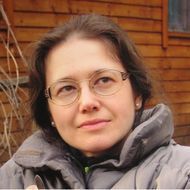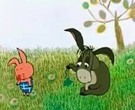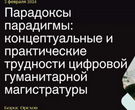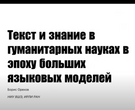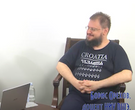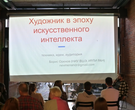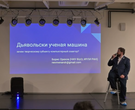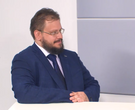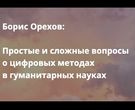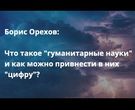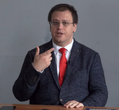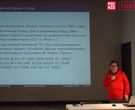- A
- A
- A
- АБB
- АБB
- АБB
- А
- А
- А
- А
- А
- Национальный исследовательский университет «Высшая школа экономики»
- Факультет гуманитарных наук
- Школа лингвистики
- Новости
- Сабине Иатриду и Флорис Рулофсен на семинаре Формальной лаборатории
-
Школа
- О школе
- Сотрудники
- Семинары
-
Исследовательские подразделения
-
- Международная лаборатория языковой конвергенции
- Центр «Русский как иностранный»
- Центр цифровых гуманитарных исследований
- Центр языка и мозга
- Лаборатория по формальным моделям в лингвистике
- Лаборатория «Корпусные исследования»
- Лаборатория языков Кавказа
- Лаборатория учебных корпусов
- Лаборатория теоретической и полевой фольклористики
- Лаборатория социогуманитарных исследований Севера и Арктики
-
-
Проекты
-
Проекты сотрудников
-
Проекты студентов и аспирантов
-
Завершённые проекты
- Некомпозициональные конструкции в эритажном русском
- Компьютерные и лингвистические ресурсы для поддержки шугнанского языка
- Лингвоспецифическая разметка китайских текстов в Русско-китайском параллельном корпусе НКРЯ
- Цифровой архив: создание корпуса журнала "Отечественные записки"
- Создание лингвокультурологического подкаста о России для иностранцев «Yellow Blue Bus» (Я люблю вас)
- База данных русских идиом
- Компьютерные и корпусные инструменты для иранистических исследований
- Русский разговорный клуб
- Шугнанские глаголы в типологическом освещении
- Создание академического онлайн-словаря персидского языка
-
- Международное сотрудничество
- Экспедиции
- Ресурсы
- Препринты
- Наша книжная полка
-
Образовательные программы
- Бакалаврская программа «Фундаментальная и компьютерная лингвистика»
- Магистерская программа «Компьютерная лингвистика»
- Магистерская программа «Лингвистическая теория и описание языка»
- Магистерская программа «Русский как иностранный во взаимодействии языков и культур»
- Магистерская программа «Цифровые методы в гуманитарных науках»
- Аспирантская школа по филологическим наукам
Адрес: 105066, г. Москва,
Старая Басманная ул., д. 21/4
Телефон: +7 (495) 772-95-90 доб. 22734
E-mail: ling@hse.ru
Редакторы сайта — Наталья Борисовна Пименова, Максим Олегович Бажуков, Константин Евгеньевич Сатдаров
- Международная лаборатория языковой конвергенции
- Лаборатория «Корпусные исследования»
- Лаборатория по формальным моделям в лингвистике
- Лаборатория языков Кавказа
- Лаборатория социогуманитарных исследований Севера и Арктики
- Научно-учебная лаборатория учебных корпусов
- Центр «Русский как иностранный»
- Научно-учебные группы
- Каталог проектов по компьютерной лингвистике
- Проекты, поддерживаемые грантами
- Русский язык для всех
- Лингвистический кружок для школьников
- Лингвистика в Центре открытого образования
Школа лингвистики была образована в декабре 2014 года. Сотрудники школы преподают на образовательных программах по теоретической и компьютерной лингвистике в бакалавриате и магистратуре. Лингвистика, которой занимаются в школе, — это не только знание иностранных языков, но прежде всего наука о языке и о способах его моделирования. Научные группы школы занимаются исследованиями в области типологии, социолингвистики и ареальной лингвистики, корпусной лингвистики и лексикографии, древних языков и истории языка. Кроме того, в школе создаются лингвистические технологии и ресурсы: корпуса, обучающие тренажеры, словари и тезаурусы, технологии для электронного представления текстов культурного наследия.
В печати
Nasledskova P., Netkachev I.
Studies in Language. 2026. P. 1-44.
В печати
Lander Y., Bagirokova I., Lander A.
In bk.: Theoretical Issues in the Languages of the Caucasus. Amsterdam: John Benjamins, 2026.
arxiv.org. Computer Science. Cornell University, 2024

Сабине Иатриду и Флорис Рулофсен на семинаре Формальной лаборатории
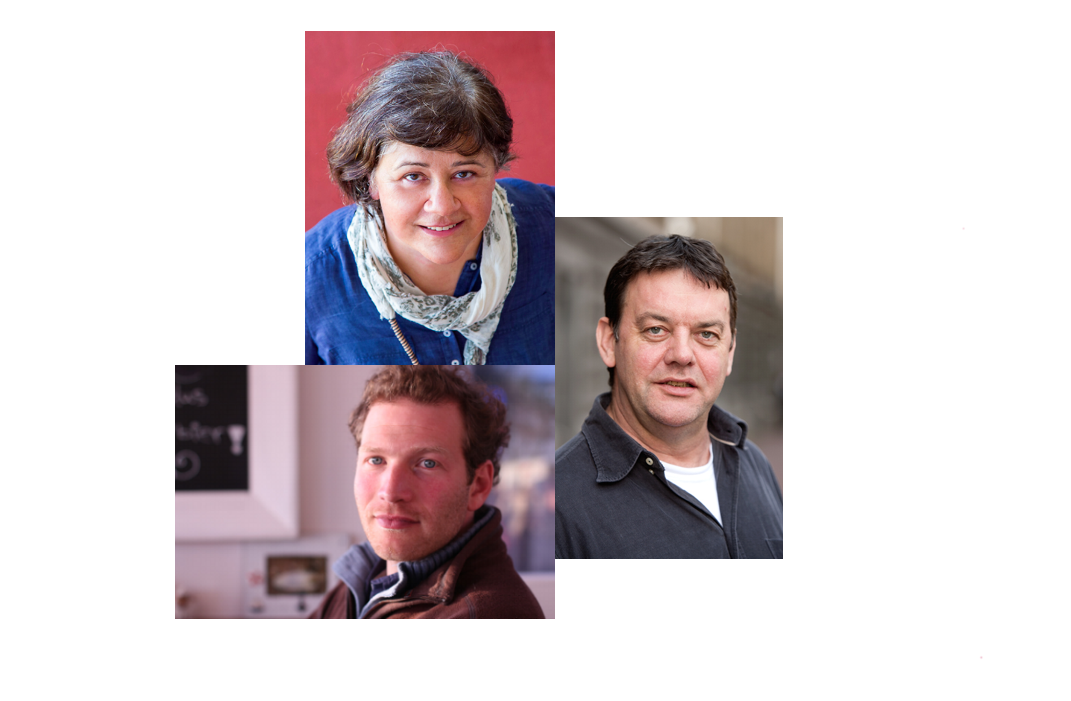
10 декабря на семинаре выступили Сабине Иатриду и Флорис Рулофсен. Учёные рассказали о своей совместной работе с Кисом Хенгевельдом, посвященной исследованию quexistentials в языках мира. Quexistentials (образовано от слияния английских слов question и existential) – термин, введенный исследователями для обозначения слов, которые могут использоваться в вопросах и в качестве вопросительных слов, и как неопределенные именные группы с пресуппозицией существования. Например, так может использоваться слово что в русском:
Что болит? (вопросительное слово)
Болит что? (= Болит ли что-нибудь?; неопределенное местоимение)
В докладе обсуждалась типология таких элементов, влияние на их интерпретацию информационной структуры, в частности, положения фокуса. Подробно обсуждались русские данные.
Аннотация прошедшего доклада:
Many languages have words which can be interpreted either as question words or as existentials. We call such words 'quexistentials'. An example is the Dutch word wat, which can mean either what or something. Other languages that have quexistentials include Russian, Mandarin, Korean, Vietnamese, German, and Passamaquoddy. It has been observed in the literature that focus plays an important role in the interpretation of quexistentials. More specifically, it has been claimed that across languages, quexistentials are (i) always focused on their interrogative interpretation, and (ii) never focused on their existential interpretation (see Haida 2007 pages 47, 51, 169, 182, and the many further references given there). We refer to this as the quexistential-focus biconditional: a quexistential is interpreted as a question word if and only if it is focused.
The contribution of the paper is twofold. On the one hand, we offer a possible explanation for one direction of the quexistential-focus biconditional, namely the fact that quexistentials are generally contrastively focused on their interrogative use. We argue that this should be seen as a particular instance of an even more general fact, namely that interrogative words (quexistential or not) are always contrastively focused. We propose to account for this fact by generalizing the common view on contrastive focus in a way that incorporates both an external and an internal notion of contrast.
The second contribution of the paper concerns the other direction of the quexistential-focus biconditional. We present evidence which, at least at face value, suggests that this part of the generalization is in fact not valid. That is, focus on a quexistential does not necessarily preclude an existential interpretation, at least not in all languages. Specifically, we will show that it is possible for Dutch wat to be interpreted existentially even when it is focused. However, we will attempt an explanation of this phenomenon.
Сабине Иатриду – PhD, профессор Отделения лингвистики и философии Массачусетского технологического института, руководитель аспирантской программы по лингвистике.
Флорис Рулофсен – доктор наук, доцент Института логики, языка и вычислений, Университет Амстердама.
Кис Хенгевельд – доктор наук, профессор отделения теоретической лингвистики Университета Амстердама, научный сотрудник Центра языка и коммуникации в Амстердаме.
- О ВЫШКЕ
- Цифры и факты
- Руководство и структура
- Устойчивое развитие в НИУ ВШЭ
- Преподаватели и сотрудники
- Корпуса и общежития
- Закупки
- Обращения граждан в НИУ ВШЭ
- Фонд целевого капитала
- Противодействие коррупции
- Сведения о доходах, расходах, об имуществе и обязательствах имущественного характера
- Сведения об образовательной организации
- Людям с ограниченными возможностями здоровья
- Единая платежная страница
- Работа в Вышке
- ОБРАЗОВАНИЕ
- Лицей
- Довузовская подготовка
- Олимпиады
- Прием в бакалавриат
- Вышка+
- Прием в магистратуру
- Аспирантура
- Дополнительное образование
- Центр развития карьеры
- Бизнес-инкубатор ВШЭ
- Образовательные партнерства
- Обратная связь и взаимодействие с получателями услуг
-
http://www.minobrnauki.gov.ru/
Министерство науки и высшего образования РФ
-
https://edu.gov.ru/
Министерство просвещения РФ
-
http://www.edu.ru
Федеральный портал «Российское образование»
-
https://elearning.hse.ru/mooc
Массовые открытые онлайн-курсы
- © НИУ ВШЭ 1993–2026 Адреса и контакты Условия использования материалов Политика конфиденциальности Карта сайта
- Редактору


